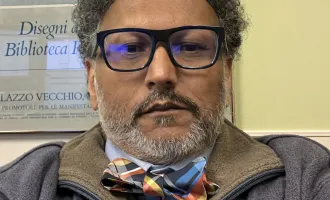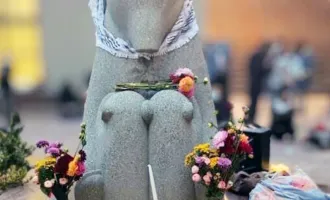
Edison Uno
This Date in UCSF History: Plaque Honors Human Rights Hero
Originally published in Synapse on October 2, 1980.
Last week at a ceremony attended by about 50 — including family, friends, top UCSF administrators, Mayor Dianne Feinstein, and UC Regent Yori Wada — a plaque was dedicated in honor of Japanese American activist Edison Uno.
The last line on the plaque summed up how most people characterized Uno: “He refused to stand by silent when the human rights or any minority, or any group, were under attack.”
Uno, who died in 1976, was employed at UCSF for nine years — the last five as Assistant Dean of Students (housing office).
Uno’s accomplishments, especially as a leader in the Japanese American community and an advocate for social change, were many. He was probably best remembered for helping win the repeal in 1971 of Title II of the Internal Security Act of 1950.
The act permitted incarceration in detention camps of any persons suspected of espionage against the U.S. Uno, during his youth, spent three years in a WW II internment camp.
He spoke often about that awful experience, reminding many of the mistreatment Japanese Americans received.
Grand Jury
In the 1960’s he was involved in struggles to establish ethnic studies at San Francisco State University, where he later became a lecturer/instructor.
In 1970, as the first person of Japanese ancestry to serve on the San Francisco grand jury, he received public attention for criticizing the jury system.
His efforts later led to grand jury reforms, better public understanding of that system, and more minority representation.
Uno's later battles included seeking a presidential pardon for Iva Toguri D’Aquino, better known as “Tokyo Rose,” and aiding in the defense of Wendy Yoshimura. His accomplishments were not unnoticed by this campus.
In 1972 he received the UCSF Chancellor’s Award for Public Service. During his employment at UCSF, he became known as an advocate of student interests.
A 1973 Synapse editorial stated, “Mr. Uno bears the laudable distinction of being one of few administrators on this campus who has been responsive to student needs and student problems.”
Last week’s ceremony, however, did include a touch of irony. The university which was honoring Uno was the same one which, in 1973, attempted to dismiss him.
Conflict
After an apparent conflict with a Housing Office superior, no longer employed at UCSF, Uno was fired. Uno — backed by student, community and campus groups — appealed the dismissal.
After an investigation, an appeals committee unanimously concluded that the dismissal was unwarranted.
Chancellor Sooy concurred and reinstated Uno. Uno later quit for health reasons and increased his teaching responsibilities at San Francisco State.
Although his dismissal case was presented as a personality conflict between Uno and his boss, Uno later said it involved more than that.
Uno felt that because he was outspoken and an “active agent of change,” he had won many enemies in the university administration. His boss was merely the “hatchet man,” he said.
Last week, however, many spoke highly of Uno as the university officially recognized his many accomplishments. In the future, a community service award in his name will be given to a member of the campus community, it was announced last week.
The Edison Uno plaque, said Academic Vice Chancellor Shirley Chater, will be placed on the MU Housing Office wall (in the MU plaza) so that the campus may enjoy his memory.
The plaque will also serve as a reminder that others could follow his example as one who persevered for social change and human rights.



